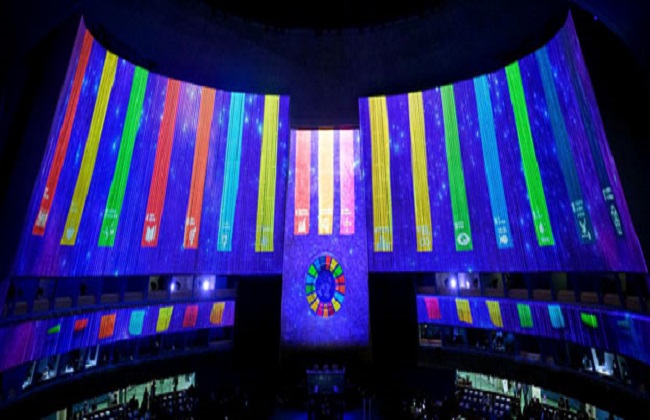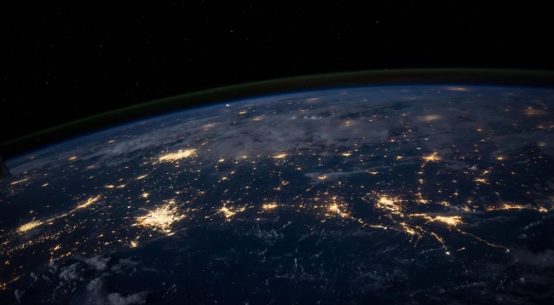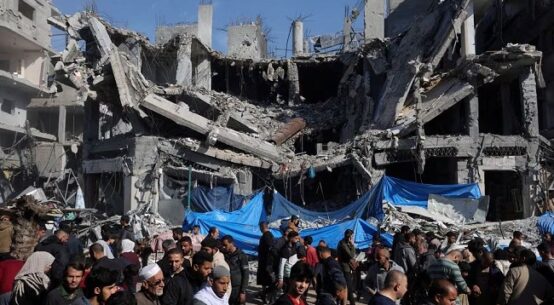
The world is now half way to 2030 but the ambitious goals agreed in 2015 including the Paris Agreement and the Sustainable Development Goals (SDGs) are under threat, action is urgently needed.
Over the past week world leaders gathered at the UN at the SDG Summit to set out the next steps towards 2030 and there is still a long way to go. Even the Secretary General’s own report highlighted that only 12% of the goals are on track.
Recent years have seen a series of inter-locking crises leading to growing inequality, escalating cost of living and devastating impacts around the world, pushing many people further behind. The Covid-19 pandemic is still taking its toll, affecting health, education and economic opportunities.
Authoritarianism, armed conflicts and militarism are tearing through already fragile communities. Millions of people are facing oppression, war, displacement, and loss of homes and livelihoods.
At the same time, the effects of the climate crisis are already affecting people and ecosystems, especially in the Global South, presenting a long-term threat to our shared lives on this earth. With temperatures continuing to rise, we are witnessing irreversible slow progress impacts and an increase in extreme weather events that are already affecting communities at the frontlines.
Challenging negotiations
The world is facing multiple and interlocking challenges but leaders are still not coming together with the urgency that is required.
In fact, the final outcome text even includes the following recognition: “we are alarmed that the progress on most of the SDGs is either moving much too slowly or has regressed below the 2015 baseline”.
For this SDG Summit negotiations started in February on a Political Declaration, guided by the Ambassadors of Ireland and Qatar. A broad dialogue was established, and inputs were also taken from wider stakeholders in the early part of the negotiations. The co-facilitators enabled a clear process for dialogue and a number of key points were brought into the text.
However, the negotiations became increasingly fraught and dragged on until the beginning of September.
There have been suggestions that there were disagreements on language around gender equality, climate change and also on the fundamental question of financing for the implementation of the Goals.
Even after the final draft was circulated there has been a letter of concern on the demand for language on ending sanctions by Russia and a number of other member states. So. did the Summit deliver any clear proposals for the way forward?
On the positive side, there are several points that resonate with demands of campaigners. The Political Declaration does include in article 14 the commitment to “end poverty and hunger everywhere, to combat inequalities within and among countries; to build peaceful just and inclusive societies; to respect, protect and fulfil human rights and achieve gender equality and the empowerment of all women and girls and to ensure the lasting protection of the planet and its natural resources.”
There are also clear references to access to universal health, quality education, fighting against discrimination, halting biodiversity loss and the need for peace justice and the rule of law.
However, overall the text primarily ‘re-affirms’ existing commitments. In the crucial section (paragraph 38) on the planned steps forward, there is very little new practical action agreed. In fact, the points on financing mainly reiterate existing commitments and highlight that the discussions around financing and international financial architecture will continue “at the United Nations as well as other relevant forums and institutions”. The urgent need for implementation and delivery is not matched by audacious new commitments.
Finally, the text is noticeable in that it does not explicitly recognise the role of the ‘whole of society’ approach in the delivery of the next steps for the SDGs and seems to focus on delivery by member states and the UN system. This is a clear gap, as civil society groups often play a critical role in implementation and also the monitoring and review of the SDGs.
It was also noticeable that there were only a limited number of world leaders present for the Summit itself and that there were very few new financial commitments. In this sense, leaders did not step up with the level of ambition that had been requested by the Secretary General for the ‘SDG Simulus Plan’ and many key issues remain unresolved.
So. once again the tough decisions are mainly being postponed and delayed by governments, while the planet faces critical crises around conflict, structural inequalities and extreme weather emergencies.
As the clock is ticking towards 2030, it is the campaigners and the community organisations around the world who seem to be most ready to step forward. Over recent days, out on the streets and in surrounding buildings people have been mobilising: thousands of people marched through the centre of New York for climate justice and hundreds of NGOs gathered at the Global People’s Assembly across the road from the UN. Community groups around the world also stepped up as part of the Global Week of Action on SDGs to share their own solutions and to raise their voices for essential local causes.
Now is the time for action, citizen organizing is on the rise and if governments will not act then they must listen, open the doors and enable transformative change!
Oli Henman is Global Coordinator of Action for Sustainable Development and one of the co-chairs of the Major Groups & Other Stakeholders Coordination Mechanism which connects diverse community groups and constituencies with the official UN SDG process.


